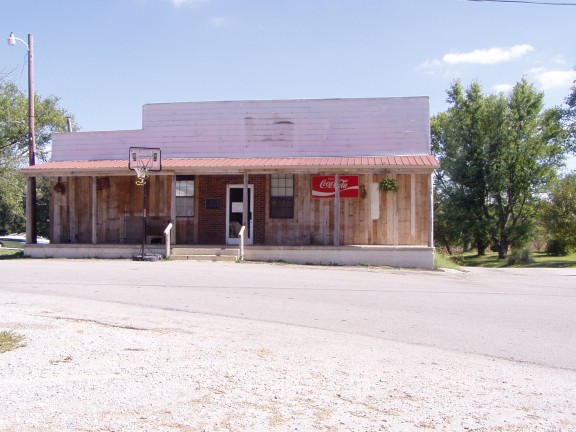On September 2, 2010, the doors of the general store in Taylors Crossroads closed, probably for the last time. Being one of the oldest country stores in this county, a lot of history has transpired in that building, now more than 100 years old. Using information from articles written by Wilbur C. Smith, here’s a look back at how it began.
Taylors Crossroads is named for Joseph Taylor who purchased a very large tract of property in that district in the early 1800's. He deeded a small portion of that property for a school that once sat across the road from the present location of the general store. Because of his gift of the property for a school, the community was named for him. His descendants, Johnny Taylor and wife Kathy Taylor, continue to live nearby and still own property not too far from the general store.
Wilbur C’s article about the store says that "The building was originally located in the Hatcher Hall community and was owned by Joe D. Hatcher and eventually Hardy Keisling. People came from miles around to purchase necessities, everything from morphine to slate pencils. The first meeting of the Eagle Creek Lodge #530 is believed to have been held in the Hatcher Store. During the year 1919, the store was moved to its present location. The building was mounted on poplar poles and dragged by 14 pairs of mules to the present site. The route used to move the store building is believed to have been through the swamps of property owned at that time by the Harris Hatcher family (now Charles Keisling) and then across lands owned now by Paul and William Sells. Herbert Clayborn Savage bought the store from the Keisling heirs and was the first owner to sell merchandise at the new location. Mr. Savage later owned a store in the Oakley community."
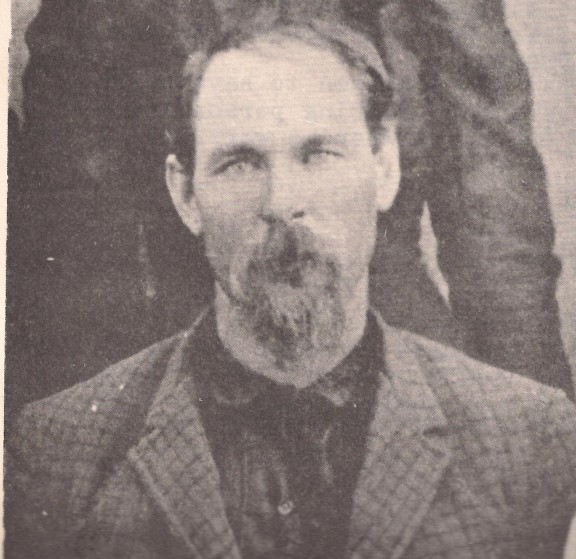
Stanley Carter referred me to information included in the Overton County History Book about Herbert Clayborn Savage written by a granddaughter of Mr. Savage whose name is Dorothy Jane Perego. Here is a portion of what she writes about her grandfather:
"Herbert Clayborn Savage, born September 13, 1879 in the Oakley community, was the youngest child of Milton Monroe Savage and wife Polly Ann Mordock Savage. He married Emily Jane Nelson, daughter of David Hammer Nelson and wife Jane C. Keene Nelson. The first job Herbert Clayborn Savage had was clerking in Hargrove’s store in Oakley. Later he started his own store just across the road from the Luther Ramsey residence. He eventually moved this store building to Taylors Crossroads where he attached it to the building that had previously been moved from Hatcher Hall. He sold the store not too long after the reconstruction was completed. The Savage family then moved to Willow Grove where Herbert co-owned another store, this time with Dr. Walter Sidwell."
Bobbie and Jim Sells of Livingston have a stoneware platter with gold-lettered engraving H.C. Savage General Mercantile that is believed to have come from either the store at Crossroads or the one in the Oakley community.
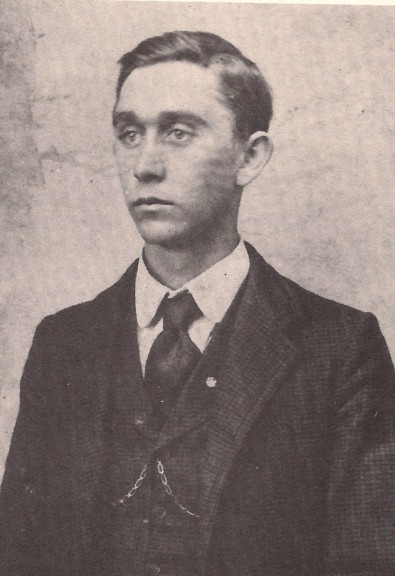
According to Wilbur C. Smith, "Other merchants who operated the general store at Taylors Crossroads were Mose Robbins; Wylie Little; John Duncan; and Clay Reeves. The Reeves family leased it in the 1920's to Henry Murphy and later to Vollie P. Moss."
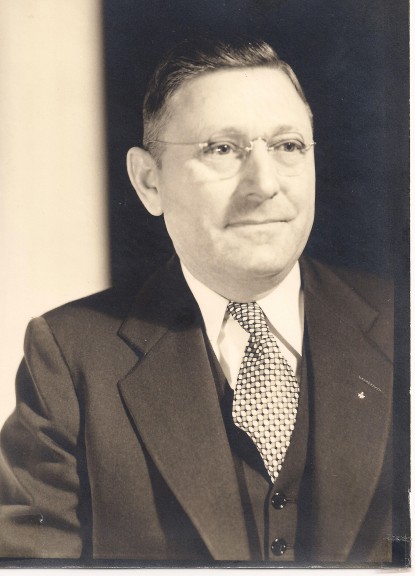
Wilbur C’s article goes on to say that "In 1930, John Dudley Coleman bought the building along with a dwelling house and eight acres of land. The Coleman family owned and operated the store until 1991. In the early years of John Dudley Coleman’s ownership, the Great Depression hit, making it difficult for farmers to sell their farm products. The late Bill Coleman remembered when eggs were six cents a dozen and corn was 40 cents a bushel. Because there was no money, farmers had to take "due bills" for their chickens and eggs. The Colemans bought not only eggs and chickens, but fur hides, chestnuts, and ginseng. Once, Mr. Coleman traded a Steel King double-bladed axe priced at $1.60 to Carson Parker for a 500 pound calf.
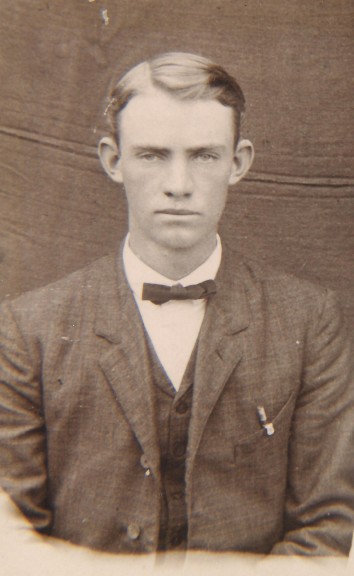
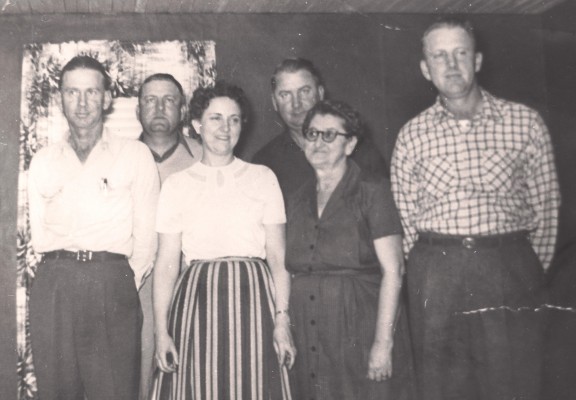
"Being one of the largest country stores in Overton County, most necessities from plow points to shoes and clothing for the entire family could be bought there. Six corn mills were located in the vicinity of Taylors Crossroads and were run by local residents Sam Flowers; Roscoe Martin; Sherman Garrett; Billy Morgan Garrett; Virgil Stover; and Bob Taylor."
Eventually, all the sons of John Dudley Coleman helped out with the operation of the store. Just across the road in the home of the oldest son, Chester, a pharmacy was also maintained. Most will remember the house Chester and family lived in as later being owned by Sherlie and Oleeta Smith. After the death of John Dudley Coleman in 1947, the store continued to be run by the Coleman brothers, Bill, Ed, Minor, and J.D.
Stanley Carter, who worked as a clerk for J.D. Coleman for approximately ten years, recalled how, before the construction of Dale Hollow dam, folks who lived along the Obey River traveled for miles by horse and wagon to trade there. The store was always well-stocked with staple items in addition to carrying all other types of merchandise for housewives and farmers alike.
Some memories have been shared with me by members of the Coleman family, beginning with Betty Sue Coleman Ledbetter. She recalled how she, along with cousins Sandra, Rita, and Carolyn would sneak in the feed building across the road from the store and play on the feed sacks. Their fun would come to a screeching haul when Sandra and Rita’s father, J.D. Coleman, discovered what they were doing and ran them out. Another memory Jimmy Coleman had was about his job as chicken catcher. On the front of the store, a screened in area had been built for the purpose of keeping chickens that had been bought or traded for. A truck came on every Thursday to transport the chickens, and that was the day Jimmy, and sometimes Joe Coleman and Ronald Roberts, would catch the chickens and put them in wooden chicken coops. Jimmy described his clothes as being really dirty by the time chicken catching days were over with. (That’s not exactly the words he used to describe what was all over his clothes.)
Patsy Coleman Williams, daughter of Ed Coleman, shared these memories: "Back in it's day, J. D. Coleman and Son's General Merchandise was the hub of the community, and always contained every basic necessity you could think of -- food, clothes, shoes, hardware, nails, tobacco, snuff, material for sewing, thread, shells for hunting, fishing tackle, medicines, feed for cattle, fertilizer, seeds, gasoline, oil, and some farm equipment. The people in the community, as well as us kids, were always selling things to the store. I would dig May Apple and dry the roots and sell them to Daddy. I always wanted to find ginseng because it sold for so much more, but I never could find it. People would pick up Coke bottles and bring them to the store to sell to Dad. He would also buy strawberries from the local farmers and resell them. Animal pelts would be bought too. Joe, Jimmy, and Johnny would trap and dry the hides to sell them to the store. Joe said that Daddy bought him his first steel traps from the store and he was so excited, but the first thing he did was to catch his foot in the trap. Some of the store loafers came to his rescue and freed him from the trap. Dad would buy country hams from area farmers and resell them, and sometimes, the hams would be taken to the Smokey Mountains to be sold. Dad would hang the hams from wires on poles in the side room of the store. Also in that side room were stacks that contained flour, meal, sugar, and chicken feed. Joe remembers watching Dad stick a nail into the ham and smell the nail to see if the ham was still good. Daddy would buy chickens from the local farmers and there was a chicken lot behind the store where they were kept. He would sell the chickens to a man from Cookeville known as Rooster Red. Joe, Johnny, and Jimmy were always standing by when Rooster Red came to buy the chickens because if one got loose, he would pay the boys a nickle per chicken to catch them.
"Joe, Jimmy, Johnny, and I would play Cowboys and Indians a lot. We would pick up Country Gentlemen tobacco sacks from the store and put our gold (yellow corn) in those bags. Of course for us kids, our favorite part of the store was the candy counter. It was oak enclosed with glass, with sliding glass doors in the back and we kept those doors busy until our Dad's told us that we had eaten enough candy for that day. What a treasure chest! All the counters in the store was made of oak and they were very nice. Back in the 50s, someone convinced them to update the store. I truly wish they had kept it in it's original state.
"I remember when food was rationed and people had to have stamps to be able to purchase food. Salesmen would come to the store to sell their wares and they were called drummers. One delivery man was black, and I remember Daddy telling him that he had to leave early enough in order to get through Crossville before dark because they shot black people after dark. Daddy was always caring for everyone. On Saturdays they would have a drawing at the store and give away lamps and household items. This would draw large crowds. Our Mother would get excited when a new shipment of flour came in. She would go to the store and pick out the prettiest flour sacks to make aprons and dish towels from.
"Joe, Jimmy, Johnny, and I would always ride with Hoover Roberts when he made fertilizer and feed deliveries. We would climb up high on the side racks. Hoover would drive fast and we would have a blast dodging tree limbs and keeping bugs out of our mouth and eyes. We laid in wait until he loaded the truck. We were all always right there for the exciting ride.
"Carolyn remembers families walking to the store with all their children along to purchase a month's supply of groceries. Hoover Roberts would always take them home in the truck. Carolyn remembers the fun time she and Sandra had playing in the warehouse that seemed so big to them as children. The feed and fertilizer was kept in the warehouse. It was fun to sneak in and play, but when we saw our Dads coming, we would run and hide, or escape out the back door, because we were not supposed to be playing in the warehouse. I remember hearing Joe tell about the time he, Johnny, and Jimmy were playing in the warehouse. Jimmy threw a broom that hit Gay Linder in the head and down he went. The boys thought for sure he was dead. They were sure relieved when Gay got up off the floor. We all had lots of fun playing in the warehouse. Carolyn remembers that once our store was robbed and the cash register was found in the ditch up the road with all the money in it because the robbers were not able to open it. She remembers Daddy keeping all the money from the store at home every night and we would sleep with our doors unlocked.
"I remember when I would go to the store to see my Dad. He was always sitting at the desk in the back of the store because he was the bookkeeper. He would always stop his work, put his feet up on the desk, I would sit on the floor, and we would have our talks. Sweet memories!
"During the winter, there was a pot belly stove in the store and it was always very warm around that stove. That is where the store loafers would sit, whittle, chew tobacco, and tell tales. In the summer they would sit on the front porch. There was never a time that I can remember when there was no one loafing at the store. It was really a neat time in our country."
The Coleman brothers eventually sold the store to Larry Daniels, but a short time after that sale, Bill Coleman and J.D. Coleman bought it back. The next owner was Johnny Fred Coleman, son of Bill Coleman. Carol Coleman, wife of Johnny Fred, ran the store during the time they owned it. Joe Garrett and wife Shirley Garrett bought the store from Johnny Fred and Carol. The ownership next passed to Ryan Meadows, then to John Carter, and lastly to the present owners, William and Robin Woody who make their home in the Duncan Bottom community. Despite all the Woodys’ efforts to update and make noticeable and attractive improvements to the store, the change in present day lifestyles made it impossible to continue the operation of the store. In the early days of the store, roads were sometimes nothing more than ruts, making travel very difficult. Despite these conditions, folks came on horseback or by way of a mule and wagon to the store in Taylors Crossroads, a place that offered something for their every need. Over time, vast improvements have been made in county highways, and no longer do local residents limit their travels to a store in their immediate neighborhood. Sadly, it’s places like Walmart and Lowe’s who offer merchandise for much less, making it next to impossible for country stores to exist in today’s world. With the closing of the Taylors Crossroads store, an end to era has arrived. The benches on the store porch have been taken away and a sign posted that says "Store Closed." No longer will the men gather on the store porch to discuss politics, among other topics of interest, or pass the time just talking. The days of a once thriving business and all the activity that took place in the center of that community will now be only a memory. Similar changes are also experienced when a small country school is closed. The entire community feels the loss. Patsy Coleman Williams summed it all up by saying, "I am so very grateful that I had the opportunity to have been brought up in the Taylors Cross Roads Community and that our family was a part of the general store there. What a neat childhood we all had. We were truly blessed."
